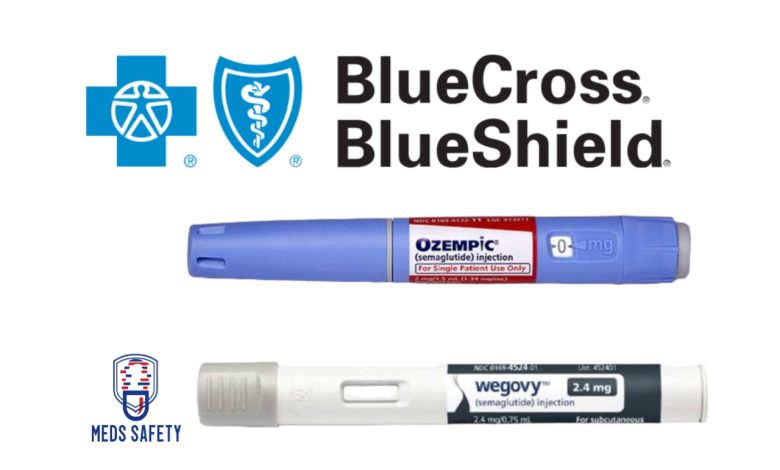Does Blue Cross Blue Shield Cover Weight Loss Injections Like Wegovy And Ozempic?

Available data indicates that One in three US adults, more than 85 million people, are considered obese; another one in three are considered overweight. In addition, more than 70% of U.S. adults are currently dealing with the challenge of carrying extra weight, a condition that significantly elevates their risk for various chronic health issues, including type 2 diabetes, heart disease, liver disease, arthritis, and certain types of cancer. This concerning statistic underscores the urgent need to address the obesity epidemic in the United States.
The importance of weight loss in reducing the risk of these chronic conditions cannot be overstated. It is widely established that shedding excess pounds can have a positive impact on overall health and well-being. However, the journey to weight loss can be fraught with challenges, and it’s not uncommon for individuals to struggle with the persistent issue of regaining lost weight.
One promising development in the field of obesity treatment is the introduction of new weight loss injections like Wegovy and Ozempic. Wegovy offers a novel approach to weight loss by providing individuals with a once-a-week injection that is administered beneath the skin.
Ozempic is also a weekly injection that helps lower blood sugar by helping the pancreas make more insulin. It is not approved for weight loss, but some physicians prescribe it to be used for weight loss. Importantly, both medications have received FDA approval, indicating their safety and efficacy. In addition, evidence also shows the new class of drugs is far more effective than prior obesity medications. A landmark clinical trial published in The New England Journal of Medicine in 2021 found that the drug led to a 15% reduction in body weight, on average.
Coverage Issues
These medications represent a beacon of hope for people who are striving to shed excess weight, especially those who have previously struggled with regaining lost pounds. However, the issue of coverage remains a major challenge because many insurers don’t cover these new weight loss injections.
The limited coverage of medications like Wegovy and Ozempic by health insurers is a complex issue rooted in various factors, including historical perceptions of obesity and the high cost of these treatments. These medications, along with others in the same class, represent a significant shift in how we approach obesity as a medical condition, moving away from the notion that it is solely a result of personal failure and lifestyle choices. Instead, the medical community increasingly views weight issues as a complex biological problem, with behavioral aspects being just one part of the puzzle. This evolving perspective is gradually being adopted by the public.
The appeal of medications like Wegovy and Ozempic lies in their ability to offer a more effective and manageable solution for weight loss. The convenience of a once-weekly injection that leads to substantial weight loss is a significant step towards treating obesity like any other medical condition. Weight loss of approximately 15 percent over one year, as observed in clinical trials of Wegovy, can have profound health benefits. Even a 5-10 percent reduction in body weight is associated with improved blood pressure, cholesterol levels, and blood sugar, according to the Centers for Disease Control and Prevention. A small study conducted by the Mayo Clinic suggested that taking Wegovy for a year could reduce the risk of heart attack or stroke.
These improvements in health can lead to longer and healthier lives, and they also have the potential to save the healthcare system substantial money. Data from the Peterson-KFF Health System Tracker shows that individuals enrolled in large employer health plans who are diagnosed with obesity incur significantly higher annual healthcare costs compared to those who are not, with costs amounting to around $12,600 versus $4,700 in 2021.
However, for most people to realize these benefits, their health insurer must cover the medication. Currently, Wegovy comes with a hefty price tag, ranging from $800 to $1,000 per month, or $10,000 to $12,000 per year. In the United States, even in the era of the Affordable Care Act, insurers maintain substantial discretion in deciding which prescription drugs to include in their coverage. According to the Wall Street Journal, less than half of large firms (those with more than 5,000 employees) cover weight-loss drugs under their health plans, and the coverage rate is even lower for smaller businesses, standing at less than 20 percent. Medicaid and Medicare, which collectively insure about 35 percent of the population, also do not cover these medications, despite the fact that obese patients are more likely to be covered by these government programs.
Does Blue Cross Blue Shield Cover Weight Loss Injections Like Wegovy And Ozempic?
Whether Blue Cross Blue Shield (BCBS) covers weight loss injections like Wegovy and Ozempic can vary based on your specific BCBS plan and the region in which you live. BCBS offers a range of health insurance plans, and the coverage for medications and treatments, including weight loss injections, may vary from one plan to another. Here are some factors to consider:
1. Plan Coverage: The specific BCBS plan you have, such as a PPO (Preferred Provider Organization), HMO (Health Maintenance Organization), or other plan types, can influence what is covered. Some plans may cover weight loss medications as part of their benefits, while others may not.
2. Medical Necessity: Insurers often consider whether the medication is medically necessary for the individual. Weight loss injections like Wegovy and Ozempic are typically prescribed for individuals with obesity or those who have specific weight-related health conditions. If a healthcare provider deems these medications medically necessary for you, it can increase the likelihood of coverage.
3. Prior Authorization: BCBS may require prior authorization before covering certain medications. Your healthcare provider will often need to submit documentation to demonstrate the medical necessity of the medication.
4. Formulary: Insurance companies maintain a formulary, which is a list of medications they cover. Some weight loss medications may be included in the formulary, while others are not. If the medication is not on the formulary, it may not be covered, or there may be additional out-of-pocket costs.
5. Co-Payments and Deductibles: Even if a medication is covered, you may still be responsible for co-payments, deductibles, or other out-of-pocket costs, depending on your plan.
To determine whether BCBS covers specific weight loss injections like Wegovy and Ozempic, it’s essential to review your plan documents or contact your BCBS representative. They can provide you with information about your specific plan’s coverage, including whether these medications are covered, any prior authorization requirements, and any associated costs. Additionally, consult with your healthcare provider to assess the medical necessity and determine the best treatment options for your weight loss goals. READ: Ozempic, Wegovy Face Stiff Challenge From Mounjaro, Orforglipron, and CagriSema for Weight Loss





